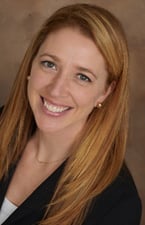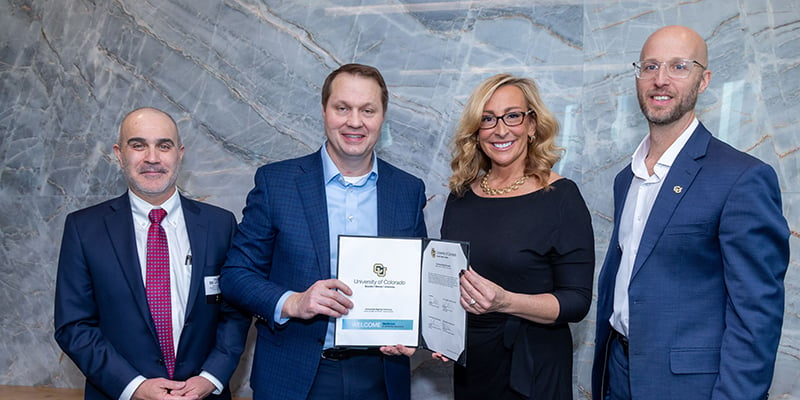A bill approved this month and backed by the Skaggs School of Pharmacy and Pharmaceutical Sciences pushes open the door to highly effective HIV-prevention drugs, potentially curbing infection for the state’s most at-risk citizens.
Gina Moore
Working in collaboration with One Colorado, the state’s top Lesbian, Gay, Bisexual, Transgender and Queer (LGBTQ) organization, and the Colorado Pharmacists Society, the pharmacy school added to a string of bills in recent years aimed at strengthening the profession and improving the health of Coloradans.
“Pharmacists are often the first point of care in the community,” said Gina Moore, PharmD, assistant dean for clinical and professional affairs. “We want people to be able to access the best evidence-based care available and to reduce HIV transmission,” said Moore, who actively supported this and past University of Colorado-backed bills.
The HIV Infection Prevention Medications Bill (HB20-1061, awaiting the governor’s signature) makes top prophylactic drugs available via a pharmacist prescription after a clinical consultation. PrEP (pre-exposure prophylaxis) and PEP (post-exposure prophylaxis) have been available since 2012.
CU researchers aided in drugs' approval
CU School of Pharmacy researchers were part of the initial efficacy and risk-assessment studies of the first drug (Truvada®).
“It really showed that the medication was very, very effective when used correctly,” said Peter Anderson, PharmD, professor of pharmaceutical sciences and co-author of the original study published in the New England Journal of Medicine in 2010.
Peter Anderson
Anderson’s lab ran drug concentration studies that helped lead to Food and Drug Administration approval of Truvada®. More recently, his lab developed a blood test that measures adherence in study participants, which helped lead to the approval of a second variation of PrEP, Descovy®, in 2019.
PrEP, preemptively taken daily by those at risk of HIV exposure, blocks viral replication, preventing infection. PEP works similarly after an exposure but must be taken within 72 hours of exposure to ward off infection.
Studies have shown that PrEP reduces the risk of getting HIV from sex by about 99% when taken daily, according to the Centers for Disease Control and Prevention (CDC). Among people who inject drugs, PrEP reduces the risk of getting HIV by at least 74% when taken daily, the CDC says.
Barriers curtail preventive-drug use
Lack of access and adherence fueled the recent bill, as surveys by One Colorado revealed barriers in the at-risk population.
“It can be a general access-of-care issue, where it’s just hard to get in to see primary care providers,” said Emily Zadvorny, executive director of the Colorado Pharmacists Society and clinical associate professor in the School of Pharmacy. “It can be lack of access to providers trained to do this type of therapy. And it may have a stigma aspect, where patients are still afraid to talk to their primary care providers about it or visit an HIV clinic. This way patients can access it through their local pharmacists,” Zadvorny said.
Emily Zadvorny
When the law takes effect, pharmacists, often available 24/7, will be able to prescribe the mediations after a short interview.
Many people shy away from accessing HIV clinics for PrEP or PEP, Moore said. “If someone were to see them, they could be unnecessarily discriminated against.” We also heard from rural areas, where people might know everybody in town, Moore said. “They said if they could visit a pharmacy in the next town to get care more readily, that that would be more comfortable for them.”
Once the bill is signed, policymakers will finalize specifics, including pharmacist training, before patients can access the drugs via local pharmacies, Moore said. Most insurance companies and Medicaid cover the drugs, and a state aid program exists for people without insurance.
The School of Pharmacy also successfully supported:
- A 2016 bill that made regulatory changes in Colorado, expanding the window of practice for pharmacists.
- A 2017 bill allowing pharmacists to prescribe birth control pills and patches.
- A 2018 bill making smoking-cessation medications available through pharmacies.
“It’s been a great collaboration between CU and the Colorado Pharmacists Society in advancing the profession,” Zadvorny said. “This is just another example of letting pharmacists practice to the top of their education while providing access to care for a serious public health issue.”






